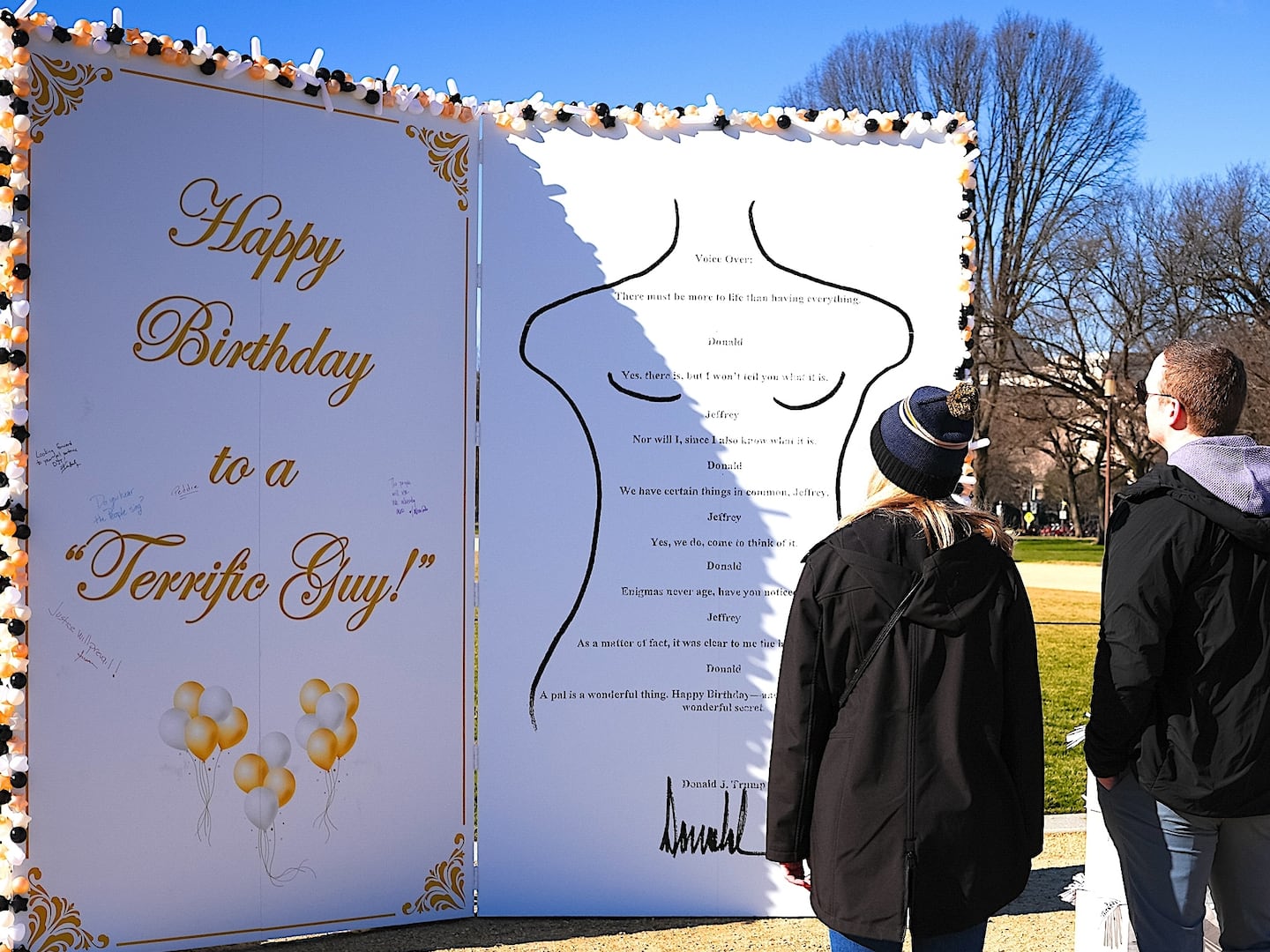
Having reenacted the Battle of Trenton via Twitter this weekend, Newt Gingrich talks to The Daily Beast about Sarah Palin's flawed fight for "ideological purity," his own "betrayal" of conservatives in New York, and what George Washington would do about Afghanistan.
Newt Gingrich is in full warrior mode this week. While he’s stepped up to battle national Republican leaders over the rightful heir to a Republican congressional seat in upstate New York–-dodging fusillades from the likes of Gov. Tim Pawlenty and Gov. Sarah Palin and buckshot from the blogging Right–-the former House Speaker is also consumed by a fight from an earlier time: the Battle of Trenton, 1776.
Over the weekend, a hardy of group of Gingrich acolytes huddled by their computers and drew out the battle plan for a Twitter re-enactment of the Trenton campaign, the victory of the American rebels over the Red Coats which inspired the iconic painting “Washington Crossing the Delaware.” And so online, for the first time in 243 years, General George Washington lined up against the Hessian commander Colonel Johann Rall and his British benefactors. A private in the colonial army, Jonathan Van Dorn died once more in front of 987 followers: “It’s hard to breathe,” the latter-day Van Dorn tweeted, “God it is so hard to breathe. Dear Lord, into your hands…”
Gingrich directed particular attention at Pawlenty and Palin for their apparent drive for ideological purity: “You should call and ask them and say what’s the purity test for the governor of California? Does anyone pass the purity test?
The twitter campaign, Gingrich said, was the first of its kind, but it isn’t the former Georgia congressman’s first venture into creative tweeting. This summer, he started Twittering in Spanish, and he updates his amigos sporadically (“Tambien tengo una comida de business leaders para american solutions en Chicago”). The Trenton reenactment is part of Gingrich’s effort to promote a new historical novel, To Try Men’s Souls, which also details Washington’s military adventure.
For Gingrich, recalling the triumphs isn’t just an act of historical daydreaming. America’s first president, Gingrich said, shows the 44th one the proper manner of how to handle the current predicament in Afghanistan. What would George do?
“Washington was very slow in making decisions,” Gingrich said. But the former Speaker added that at Trenton and elsewhere, he made the right ones.
“Washington crossed the Rubicon. He never looked back. What if he thought, ‘Gee, maybe I can cut a deal with the British?’ Our very honor depends on us winning this war. Young Americans deserve to have their commander-in-chief say that we are accepting defeat after eight years or announce that this so, so important for Americans. He is not consultant-in-chief, not orator-in-chief. He is commander-in-chief,” Gingrich said.
• Lloyd Grove: Newt’s Reagan Fantasy• Newt’s Reading ListGingrich isn’t the only one in a military state of mind. The bellicose spirit has spread to New York’s 23rd congressional district, where conservatives see Gingrich’s support of the Republican Party candidate Dede Scozzafava—over the more conservative Doug Hoffmann, running on the Conservative Party ticket—as an act of betrayal. (The seat was left vacant when John McHugh was tapped by Obama to be secretary of the Army this fall). The rural district has been called a “Hill to Die On” for conservatives. “Did [Gingrich] cross the Rubicon?” another conservative blogger asked. Whatever the metaphor, the district, which will elect a new representative on Nov. 3rd, has become an unlikely place for everyone in the Republican Party looking for a fight.
Gingrich defends his decision to back the less conservative of the two candidates. “I think that’s silly,” Gingrich said, of critics’ accusation that he was betraying the right. “Because there are many issues that matter in America. I think my record as the conservative who balanced the budget, created a Republican majority…These are facts. They don’t come and go.”
“Local people picked a local candidate,” Gingrich said, referring to the fact that Scozzafava came in first in informal balloting at four county meetings in the district.
“My number one hope is that we do not lose the seat to a Democrat.” Gingrich added that he saw this race in the context of the New Jersey’s governor campaign, where he feared that an unpopular Democratic governor, John Corzine, might be re-elected thanks to a third-party candidate who could siphon off votes. And he cited the elections of Rudy Giuliani in New York, Christie Todd Whitman in New Jersey, Dick Riordan in Los Angeles—all moderate Republicans—as key victories in 1993, which “gave us the psychological momentum to set the stage of the Contract with America.”
Gingrich criticized commentators who attack his choice and believe that Scozzafava, who is pro-choice, doesn’t merit a place in the Republican Party. On the list that have turned against the Gingrich-backed candidate: Sarah Palin, Tim Pawlenty, Fred Thompson, former House Majority Leader Dick Armey, and conservative media stalwarts new and old—National Review, New York Post, the Washington Times, RedState.com.
Gingrich directed particular attention at Pawlenty and Palin for their apparent drive for ideological purity.
“You should call and ask them and say what’s the purity test for the governor of California? Does anyone pass the purity test? I just want to know what the test is….[Scozzafava] is not the perfect candidate. You are talking about a region where we currently have 3 out 39 seats in the House. Why is it that? When I was speaker we had a substantial number of seats in the region.”
“I have no complaint with ideology analysts who make ideological points, they don’t have the assignment of trying to build a majority and defeat Obama. It takes 180 million Americans to do that,” Gingrich said.
But Gingrich’s mind these days is also turned to the time when a far smaller number of Americans threw off another unwanted government.
When asked whether he might follow in the footsteps of George Washington and run for president, Gingrich laughed, paused, and then added, “I think if you’d asked General Washington in 1776, he would have said that that was a very presumptuous view, and I’m currently working on crossing the Delaware.”
Samuel P. Jacobs is a staff reporter at The Daily Beast. He has also written for The Boston Globe, The New York Observer, and The New Republic Online.






